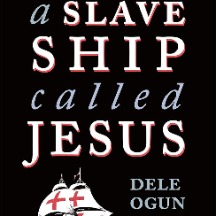William Pitt the Younger was born on 28 May 1759, the year before the new round of slave uprisings in Jamaica. At the age of fourteen he had gained admission to the University of Cambridge where his main subjects were Classical Literature, Moral Philosophy, Political Philosophy, Natural History, Medicine, Theology and Mathematics. He excelled in all of them before gaining admission as a Barrister and later becoming Member of Parliament for the, then, University of Cambridge constituency. Making his debut entry into the House of Commons on 23 January 1781 he became Prime Minister in 1783 at the age of twenty-three. As physically weak as he was mentally strong, Pitt was a formidable orator.
Pitt’s conversion to the course of abolition of the slave trade was aided by a shrewd calculation which gave him assurance that Britain could survive without the slave trade because it already had an ample stock of Africans in captivity in the Caribbean Islands.
It was he who, in 1795, as Prime Minister of England, initiated the Second Maroon War, and the invasion of Toussaint L’Overture’s Haiti, with the object of entrenching the institution of slavery in both islands. Yet two years prior he had been leading the argument in Parliament for Britain to take the lead in the debate on the abolition of the slave trade:
“How is this enormous evil ever to be eradicated, if every nation is thus prudentially to wait until the concurrence of all the world shall have been obtained? . . . There is no nation in Europe that has, on the one hand, plunged so deeply into this guilt as Britain; or that is so likely, on the other, to be looked up to as an example, if she should have the manliness to be the first in decidedly renouncing it . . . How much more justly may other nations point to us, and say, ‘Why should we abolish the slave-trade, when Great Britain has not abolished?’ . . . This is the argument with which we furnish the other nations of Europe, if we again refuse to put an end to the slave trade. . . “
The explanation for what might appear to be high hypocrisy was the distinction Pitt was drawing between abolition of the slave trade and abolition of slavery: the trade had to go but those who were already enslaved were to remain in their condition. Pitt was shrewd. He knew that it was on the back of the enslaved Africans that all things had been made possible for all the slaving powers. Africans had become the raw materials on which all enterprise depended. The labour of the enslaved being cheap and plentiful, all that was required was suitable land on which to deploy them. So long as Britain owned the American colonies, its status as the major player in the game was assured. With the loss of these colonies, it faced relegation, as the other players, France, Netherlands and Spain together with the newly independent United States, played on.
A Slave Ship Called Jesus
Features



The US Constitution was drafted at the Philadelphia Convention of May 25 to September 17, 1787, before being formally adopted on September 17, 1787. It is significant that it was in that same year that Pitt’s moment of conversion to the cause of abolition of the trade came. The epiphany is couched in near Newtonian terms by his biographer, William Hague, the former leader of the Conservative Party:
“In the grounds of Holwood, where Pitt used to love to cut and plant, a celebrated oak tree lived on into the twentieth century. Only a small stump remains today. One day in 1787, Pitt sat beneath this tree with one of his closest friends, discussing a subject which was moving rapidly from being an accepted part of the economy to a burning moral outrage: the Atlantic slave trade. The friend was William Wilberforce, who later wrote: ‘When I had acquired so much information, I began to talk the matter over with Pitt and Grenville. Pitt recommended me to undertake its conduct, as a subject suited to my character and talents.”
Pitt’s conversion to the course of abolition of the slave trade was aided by a shrewd calculation which gave him assurance that Britain could survive without the slave trade because it already had an ample stock of Africans in captivity in the Caribbean Islands. (Thomas Clarkson continued):
“It was in this retirement [of parliament] that Mr Pitt made those able calculations, which satisfied him for ever after, as the minister of the country, as to the safety of the great measure of the abolition of the Slave-trade; for he had earlier proved, that not only the islands could go on in a flourishing state without supplies from the coast of Africa, but that they were then in a condition to do it.”
With this assurance, Pitt fixed his gaze on the prize of Britain being able to claim to be the first to abolish the evil trade in which it had been the primus inter pares operator. Knowing that the Americans had committed themselves to a constitutional standstill on abolition for the next twenty years, until 1808, Pitt was in no hurry. In the end, the entirety of the American twenty-year standstill on abolition would be used by Britain to build up its own stock of Africans in the West Indies.
“In the grounds of Holwood, where Pitt used to love to cut and plant, a celebrated oak tree lived on into the twentieth century. Only a small stump remains today. One day in 1787, Pitt sat beneath this tree with one of his closest friends, discussing a subject which was moving rapidly from being an accepted part of the economy to a burning moral outrage: the Atlantic slave trade. The friend was William Wilberforce, who later wrote: ‘When I had acquired so much information, I began to talk the matter over with Pitt and Grenville. Pitt recommended me to undertake its conduct, as a subject suited to my character and talents.”
Pitt’s conversion to the course of abolition of the slave trade was aided by a shrewd calculation which gave him assurance that Britain could survive without the slave trade because it already had an ample stock of Africans in captivity in the Caribbean Islands. (Thomas Clarkson continued):
“It was in this retirement [of parliament] that Mr Pitt made those able calculations, which satisfied him for ever after, as the minister of the country, as to the safety of the great measure of the abolition of the Slave-trade; for he had earlier proved, that not only the islands could go on in a flourishing state without supplies from the coast of Africa, but that they were then in a condition to do it.”
With this assurance, Pitt fixed his gaze on the prize of Britain being able to claim to be the first to abolish the evil trade in which it had been the primus inter pares operator. Knowing that the Americans had committed themselves to a constitutional standstill on abolition for the next twenty years, until 1808, Pitt was in no hurry. In the end, the entirety of the American twenty-year standstill on abolition would be used by Britain to build up its own stock of Africans in the West Indies.
A Slave Ship Called Jesus, Lawless Publications Limited, $35
YouTube: Dele Ogun Discusses His Recent Book, 'A Slave Ship Called Jesus' - Channels Book Club
Advertisers | Contact Us | Events | Links | Media Kit | Our Company | Payments Pier
Press Room | Print Cover Stories Archives | Electronic Issues and Talk Radio Archives | Writer's Guidelines






